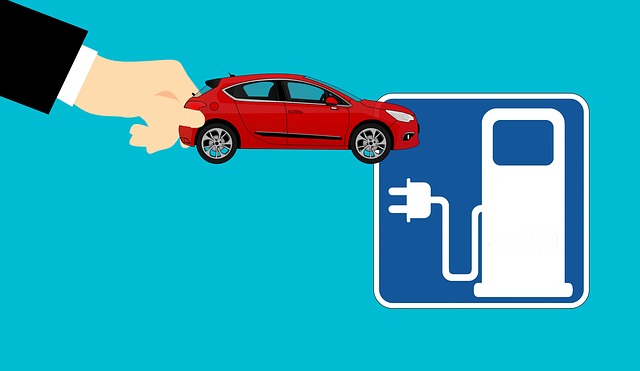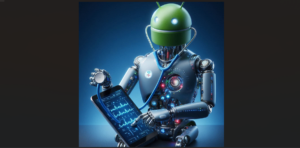The Tech Panda spoke to two Electric Vehicle (EV) experts to discuss the challenges the Indian EV sector faces when it comes to adoption.
India is geared up to make the nation an EV pro one. Awareness regarding EVs has been steadily increasing in the past few years. The government has been putting effort into bringing awareness. EV ecosystem players, including manufacturers and charging station operators, are also doing their part in increasing this awareness.
Read more: EV Bharat: Indian Electric Vehicle market in the next 5 years
Despite this awareness, consumer adoption is still low due to range anxiety, high entry cost of EVs, and a lack of infrastructure.
The Tech Panda spoke to Ashwini Tiwary, Co-founder of Autobot India, and Sameer Ranjan Jaiswal, Co-Founder, Charzer, to discuss the challenges the Indian EV sector faces when it comes to adoption.
Lack of Charging Infrastructure
Jaiswal relates the problem of adoption to the lack of charging infrastructure.
“Without charging infrastructure, it’s basically a chicken and egg cycle. Lack of charging infra causes range anxiety, which causes lesser adoption of EVs, which in turn continues to feed the cycle. And globally, the trend has been that if there’s enough charging infrastructure, the EV adoption increases,” he explains.
“We’ve all seen people struggling to charge their cars and bikes in their apartments due to lack of charging. There have been people who are forced to somehow take their vehicles to the third or fourth floor, which is not possible for the majority of the people to charge their vehicles,” he adds.

Sameer Ranjan Jaiswal
A strong push towards building this infrastructure by converting everything around us into a charging station is very important, be it the apartment that you live in, or the next door Kirana from where you shop, or the restaurant where you eat, the café where you hang out or the mall where you go to shop or your office where you know you spend a major portion of your day with your vehicle parked
According to him, this lack of charging is the biggest obstacle for the EV sector.
“A strong push towards building this infrastructure by converting everything around us into a charging station is very important, be it the apartment that you live in, or the next door Kirana from where you shop, or the restaurant where you eat, the cafe where you hang out or the mall where you go to shop or your office where you know you spend a major portion of your day with your vehicle parked. All of these places have to be converted into charging stations so that EV adoption can increase rapidly,” he says.
Charzer is building neighbourhoods of Electric Vehicle charging stations by installing compact IoT based EV charging stations in Kirana stores, cafes, small shops, restaurants, apartments, and PGs.
Lack of Trained Personnel
Another major hurdle in the Indian EV industry’s growth is the lack of trained personnel, says Tiwary.
The Senior Executive Director (Engineering) at Maruti Suzuki, the top Indian car maker, predicted that almost every EV company in India is going to face challenges of talent acquisition and development.

Ashwini Tiwary
Even if a modest 5% of this workforce is to be trained on EV technologies in the short-term, that’s a need for over a million trained personnel. To achieve success, there is a need to build infrastructure in tandem with research and training facilities
“The EV sector is going to grow huge, really big. The government is targeting 10% of all vehicles being EVs by 2025, and that itself would mean about one crore EVs on road. That’s a humongous market. Further, 30% of the automobile sector turning into EV-oriented industry would lead to generation of over 2.15 crore jobs.
“Even if a modest 5% of this workforce is to be trained on EV technologies in the short-term, that’s a need for over a million trained personnel. To achieve success, there is a need to build infrastructure in tandem with research and training facilities,” he says.
This is where Autobot Academy is aiming to lead the charge with its innovation and technology-based training for anyone aspiring to enter the EV sector.
Myth Born Lack of Awareness
Apart from lack of charging stations, lack of awareness in terms of understanding of EVs and its capabilities also deters EV adoption according to Jaiswal.
People are under the assumption that they won’t go fast, they won’t go over a flyover if two people sit on it or they have misconceptions on the performance because of certain models/vehicles that were present in the market 15 years ago. Today, EVs have become much better
“There have been a lot of myths around EVs. When we talk about two wheelers, people are under the assumption that they won’t go fast, they won’t go over a flyover if two people sit on it or they have misconceptions on the performance because of certain models/vehicles that were present in the market 15 years ago. Today, EVs have become much better,” he says.
Lack of Component Vendors
Jaiswal says EV manufacturers still rely on imported parts for quality components, which can slow things down.
So, if you are a vehicle manufacturer, one of the biggest struggles that you are facing today is lack of reliable and quality vendors who can supply components and parts at scale and in proper time
“EV manufacturers have to build a base that petrol engine or IC engine vehicles have built over decades. So, if you are a vehicle manufacturer, one of the biggest struggles that you are facing today is lack of reliable and quality vendors who can supply components and parts at scale and in proper time. There is still some dependence on importing a lot of components,” he informs.
This vendor development and the ecosystem development around component manufacturers for electric vehicles is one of the major challenges that the EV manufacturing sector is facing.
Read more: EV Bharat is spiffing up to become 30% electric by 2030












